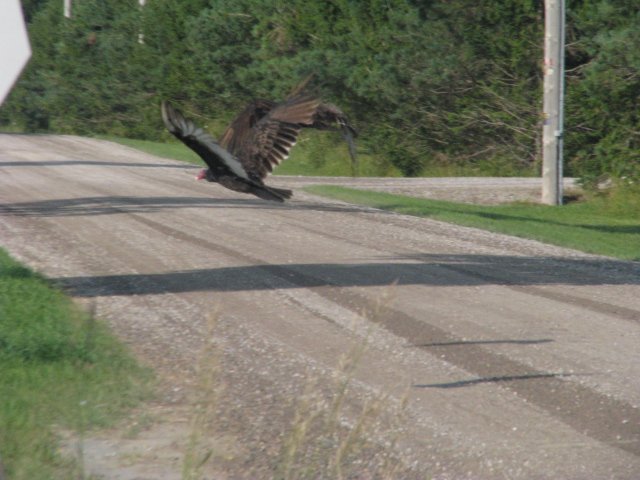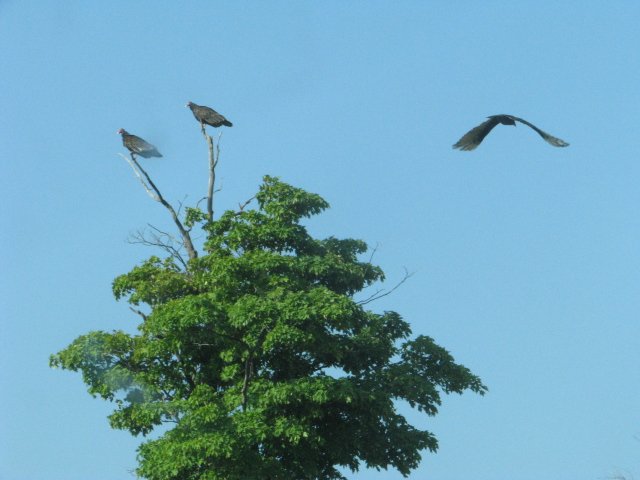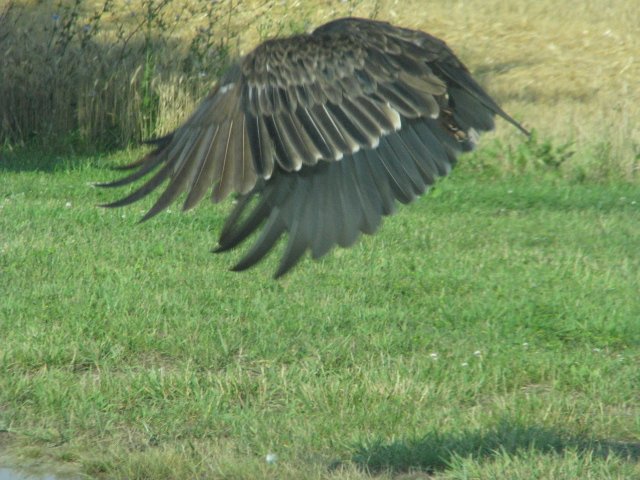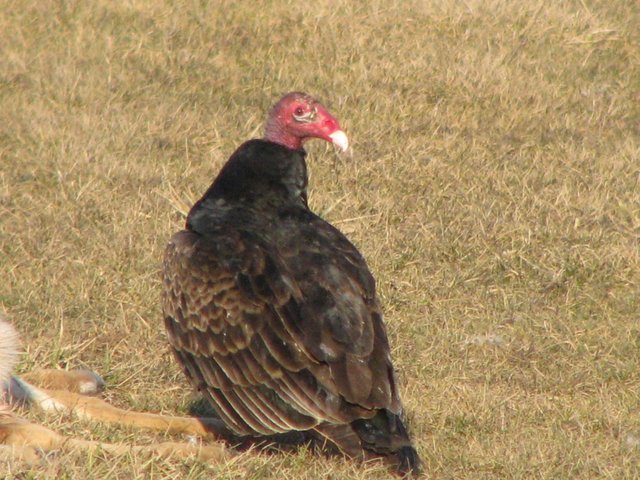Nature Shots - Turkey Vulture
( )
)
I love to catch Nature during our many drives. Turkey Vultures are my favourite bird. They are ugly, yes, with a face that only a mother could love. They do NO harm to any other living creature. In fact they mostly clean up other animal messes, and spend their entire life cleaning up dead carcasses and there isn't usually too much that goes to waste when they are done. Wouldn't that be nice if we humans went around cleaning up after everyone?
Their wing span can be from 63" to 72" and they love to glide for miles on end without a single flap of their wings. They can travel at 40 miles per hour (64km/h). An eagle can often times be seen flying with the vultures because the Vultures find the wind to soar and use less wing motion. Vultures love wind surfing.

Vultures are quite often misunderstood and are in fact an amazing bird, once you get to know more about them.
They are very social bird and usually hang out in a group. Groups of vultures are called one of 3 terms: 1) a committee 2) a volt or 3) a venue. However, when they are flying as a flock they are called a kettle.
Vultures are carnivorous and generally eat carrion exclusively, well almost exclusively. When they gather as a group to enjoy their meal it is called a wake, (sort of like when humans have wakes for their deceased, as a group).
Vultures have a very keen or sense of smell along with very good eyesight. They can find a dead animal from more than a mile away. They do not fly around waiting for an animal to die, that is a myth. That is more of a cartoon theory of them circling around and around waiting for their prey to die. They do not do this.
They do prefer to have fresh meat but their beaks aren't strong enough to tear into a fresh dead carcass. Their talons are very blunt, so if they can't tear open the carcass with their beak, they will wait for other birds or predator to open it for them to eat. Therefore, they eat a lot of rotted carcasses where the meat can be toxic if eaten by other animals. This is a vital and important role for the Vulture in the ecological role because if it weren't for them there would be diseases spread from the old rotting corpses and the vulture helps to prevent this from happening. Their digestive tract has a way of purifying the disease so that their excrement has purified any disease or illnesses.
Here I captured a vulture eating a young deer that was most likely hit by a car. I shot the picture without the body because I didn't (at the time) think that it was necessary to have the full carcass of the deer in the picture. Now I wish I had left it in and just cropped the picture for other views.

Other interesting facts:
Vultures lay approximately 1 egg per year. They lay their eggs on the ground. They vomit around their eggs as the odor will help to keep predators away.
They do have nests or homes in caves but only use them for breeding purposes.
Scientists believe that it would be good to train vultures to help find missing corpses from crimes.
When vultures need to get away from a predator they will vomit to unload their stomach for easier and faster flight.
Vultures can eat up to 2 pounds of food at one time.
This is to the best of my knowledge after doing my research.
Granny.

To listen to the audio version of this article click on the play image.

Brought to you by @tts. If you find it useful please consider upvoting this reply.
Hello @grannytalk! This is a friendly reminder that you have 3000 Partiko Points unclaimed in your Partiko account!
Partiko is a fast and beautiful mobile app for Steem, and it’s the most popular Steem mobile app out there! Download Partiko using the link below and login using SteemConnect to claim your 3000 Partiko points! You can easily convert them into Steem token!
https://partiko.app/referral/partiko
Congratulations @grannytalk! You received a personal award!
You can view your badges on your Steem Board and compare to others on the Steem Ranking
Vote for @Steemitboard as a witness to get one more award and increased upvotes!